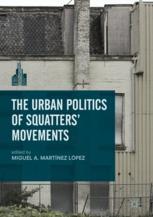

Most ebook files are in PDF format, so you can easily read them using various software such as Foxit Reader or directly on the Google Chrome browser.
Some ebook files are released by publishers in other formats such as .awz, .mobi, .epub, .fb2, etc. You may need to install specific software to read these formats on mobile/PC, such as Calibre.
Please read the tutorial at this link: https://ebookbell.com/faq
We offer FREE conversion to the popular formats you request; however, this may take some time. Therefore, right after payment, please email us, and we will try to provide the service as quickly as possible.
For some exceptional file formats or broken links (if any), please refrain from opening any disputes. Instead, email us first, and we will try to assist within a maximum of 6 hours.
EbookBell Team

4.1
50 reviewsThis volume sheds light on the development of squatting practices and movements in nine European cities (Madrid, Barcelona, Seville, Rome, Paris, Berlin, Copenhagen, Rotterdam and Brighton) by examining the numbers, variations and significant contexts in their life course. It reveals how and why squatting practices have shifted and to what extent they engender urban movements. The book measures the volume and changes in squatting over various decades, mostly by focusing on Squatted Social Centres but also including squatted housing. In addition, it systematically compares the cycles, socio-spatial structures and the political implications of squatting in selected cities. This collection highlights how squatters’ movements have persisted over more than four decades through different trajectories and circumstances, especially in relation to broader protest cycles and reveals how political opportunities and constraints influence the conflicts around the legalisation of squats.
p>